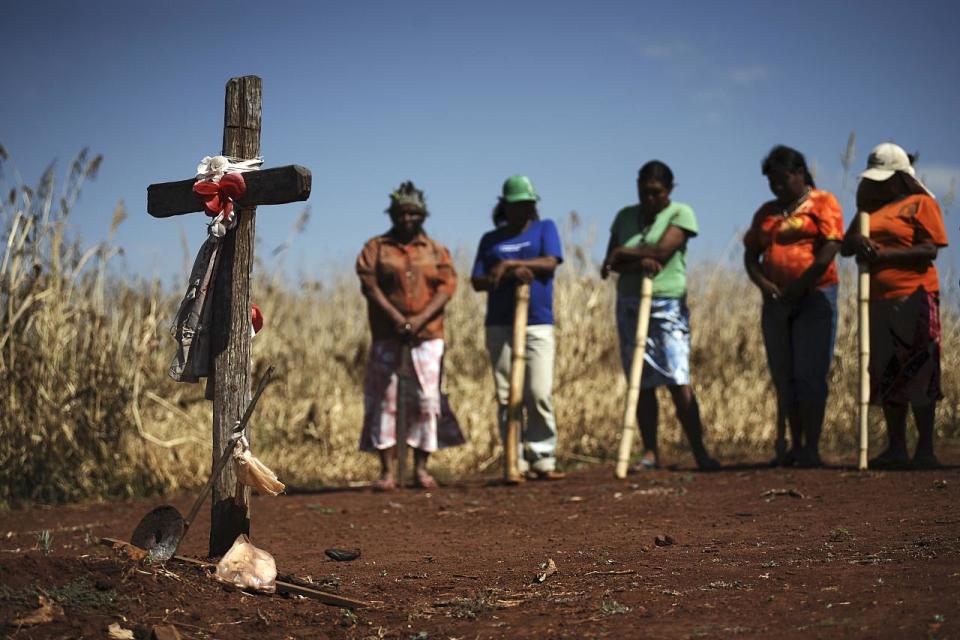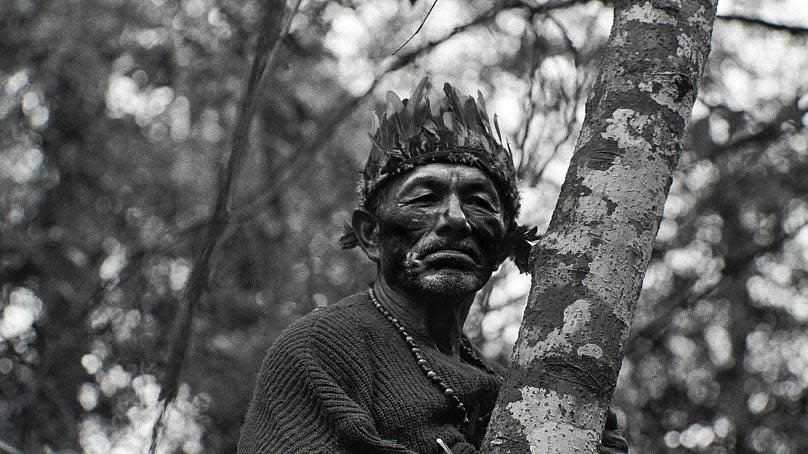Crime and human rights abuses: The dark truth behind Europe's cheap chicken
Supermarkets, fast food chains and pet food are being linked to Indigenous rights abuses in Brazil, according to a new investigation.
The environmental non-profit Earthsight released a report last month called ‘There Will be Blood: The ugly truth about cheap chicken’.
It reveals that British supermarkets, German pet food brands and fast food outlet KFC are all implicated in ongoing repression of an Indigenous group forcibly evicted from its ancestral land.
The investigation by Earthsight and De Olho nos Ruralistas, which monitors agribusiness in Brazil, uncovers the complex supply chains of KFC, Sainsbury’s, Asda, Aldi and Iceland, among others in the UK, as well as pet food sold in Germany by Lidl, Aldi, Netto, Edeka and other major retailers.
They found that one of the poultry suppliers to Europe, Worcestershire-based Westbridge Foods, is a major buyer of frozen and marinated chicken connected to a controversial farm in Brazil’s Mato Grosso do Sul state.
Here, Indigenous people have died trying to reclaim their sacred land.
How ancestral land has been turned into a soy farm
Cattle baron Jacintho Honório da Silva Filho, famed for helping to transform Brazil into an agricultural powerhouse, bought a patch of land called Brasília do Sul in 1966.
But part of the 9,700-hectare farm was built on ancestral land of the Guarani Kaiowá Indigenous group, known as Takuara. The group were evicted in the early 1950s to make way for agribusiness.
“Brazil's Indigenous agency called FUNAI identified Takuara as a traditional Guarani Kaiowá land that should be demarcated for the Guarani Kaiowá people,” says Earthsight’s head of deforestation research Rubens Carvalho. “But the Supreme Court in Brazil sadly suspended that process in 2010.”

The Guarani Kaiowá people have attempted to regain access to their ancestral land for the last 23 or 24 years. They have faced brutal violence which culminated in 2003 when Kaiowá leader Marcos Veron was beaten to death when armed Brasília do Sul workers and hired gunmen attacked the camp the Indigenous people had set up on the disputed territory.
“That day when he was killed, several members of the community were tortured and beaten,” adds Carvalho. “There’ve been other occasions of armed intimidation, even by police forces against the community.”

Three were convicted for the attack, but nobody was ever sentenced for Veron’s murder.
Violence and intimidation became an everyday threat, so the Indigenous group had no other choice than to fight for their land - as that is their only way of living according to traditions and customs.
Indigenous groups offered mediation in French supermarket deforestation dispute
Indigenous photographer captures his tribe as they fight for the rainforest
“The community lives in a precarious situation without access to their ancestral lands,” explains Carvalho. “A lot of them live in poverty because of this access to land. Some of them work in plantations in the area, and some of them live in unemployment and they have to deal with the heavy use of pesticides and chemicals by surrounding farms, which affects their health, affects the water sources at their gardens.”
What does this have to do with European businesses?
Over the past 70 years, Jacintho Honório da Silva Filho’s family transformed their business. Today Brasília do Sul produces soy.
Local sources told Earthsight and De Olho nos Ruralistas the soy is sold to large cooperatives and traders, including Lar Cooperativa Agroindustrial, one of Brazil’s largest poultry producers.
Trade records show that UK company Westbridge imported over 37,000 tonnes of frozen and marinated chicken from Lar between 2018 and 2021 – about a third of the chicken the Brazilian firm sent to the EU and UK over the period.
The records also revealed that Lar’s only major European customer for chicken products for pet food is Hamburg-based Paulsen Food, which bought about 14,000 tonnes between 2017 and 2021.

What is next for the Indigenous community in question?
“Successive Brazilian governments have failed to do their job and grant the land to the Guarani Kaiowá people as stipulated in the Constitution,” says Rubens Carvalho from Earthsight.
Giving Indigenous people land rights significantly reduces deforestation, says UN report
Eight European countries are calling for Brazil to act on Amazon deforestation
“Right now we have a government in Brazil that is actively hostile to Indigenous rights and has done everything it can to block further demarcations of indigenous lands. The Guarani Kaiowá have been waiting for more than 20 years to have their ancestral land returned to them. Sadly it seems unrealistic that this will happen anytime soon, especially not under this government.”
The Guarani Kaiowá have struggled for their rights for a long time and will continue to do so until they have their rights fulfilled. Organisations like Earthsight continue to support them.
Watch the video above to learn more about this story.

 Yahoo News
Yahoo News 




